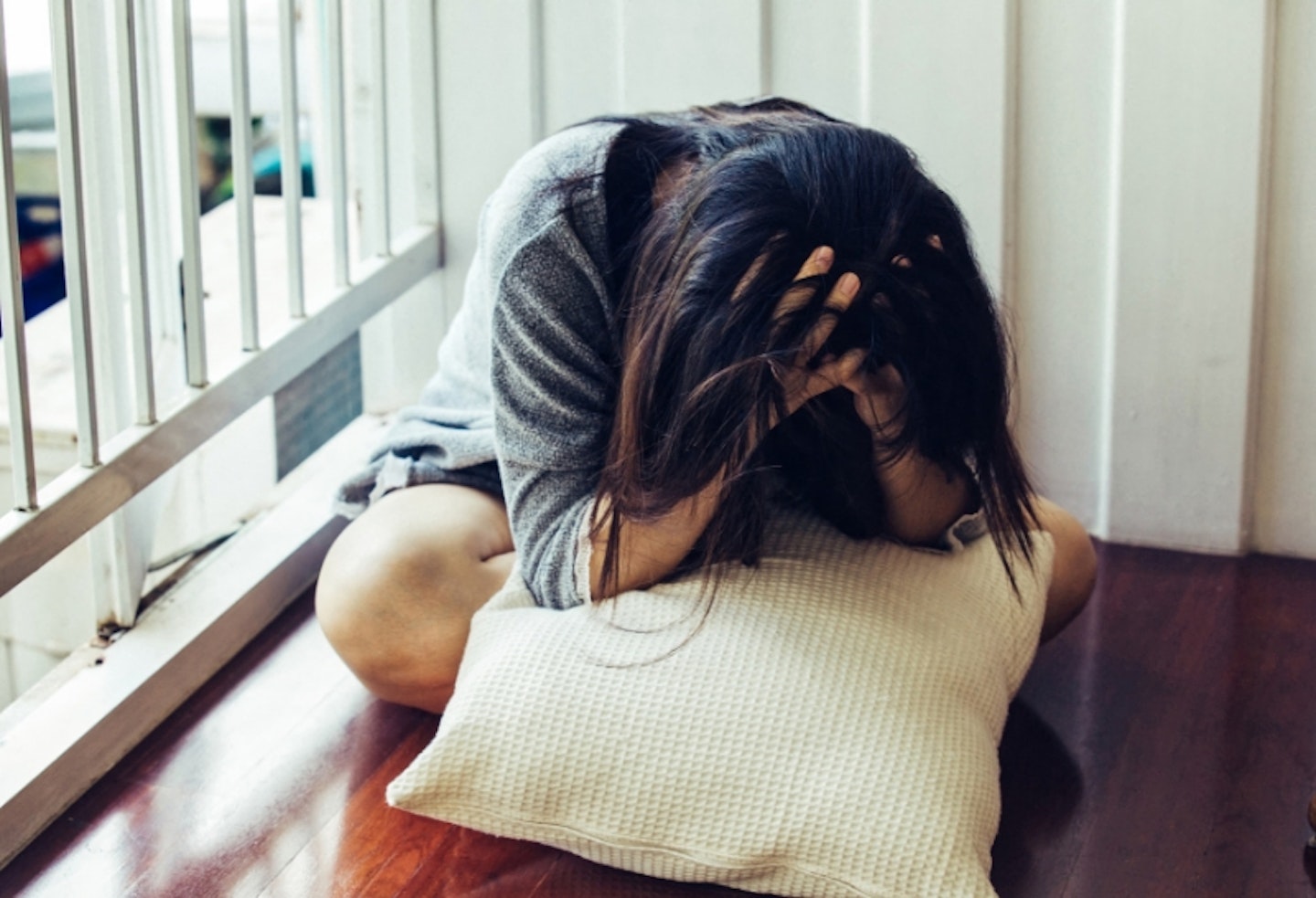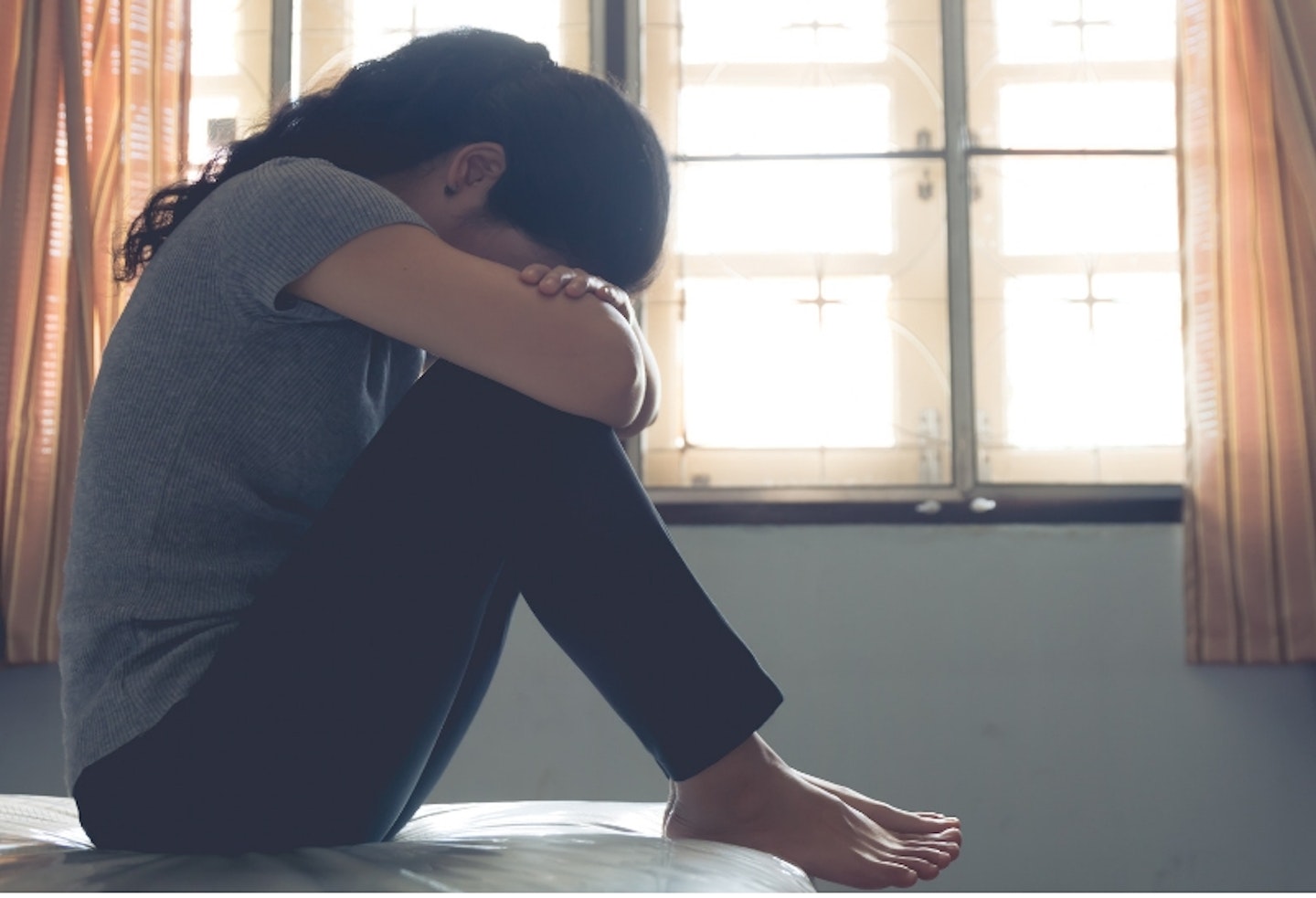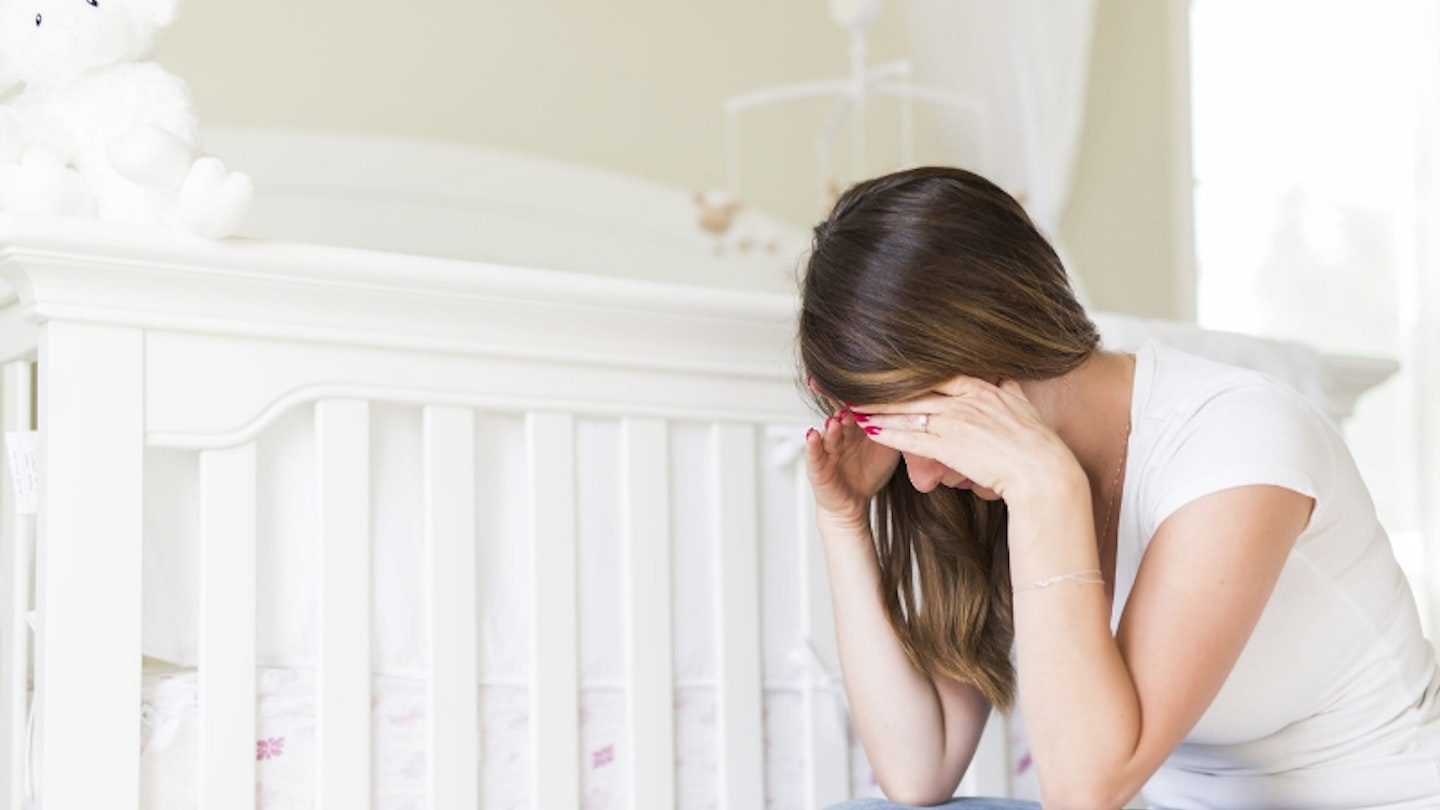We have all heard of postpartum depression but after you give birth you are at risk of other conditions that can affect your mood and behaviour.
It’s the psychiatric condition that can affect as many as one in 1000 new mothers. But what is postpartum psychosis - also known as puerperal or postnatal psychosis? Who is at risk? What causes this mental illness, and is there a cure?
We’ve got the lowdown from our experts on everything you need to know about this frightening disorder…
What is postpartum psychosis?
According to Dr Karen Joash, Consultant Obstetrician & Gynaecologist at The Portland Hospital, part of HCA Healthcare UK, postpartum psychosis is not to be confused with baby blues, postnatal depression or anxiety.
“Post-partum psychosis is a rare psychiatric emergency which is also known as puerperal psychosis,” she says. “It can start a few days after birth or may start as late as a few weeks after.”
What are the symptoms of postpartum psychosis?
According to the NHS, there is a range of symptoms of postpartum psychosis. The can often be frightening and confusing, which makes educating yourself about the disorder even more important.
“Symptoms include irrational fears, racing thoughts, labile mood and hallucinations which may be auditory or visual,” Dr Joash says. “It can also manifest with severe anxiety, inability to sleep, confusion and a dreamlike state. Women can also feel extremely tearful and fearful. Ultimately, women are unable to do day-to-day activities as before.”
David James Lees, an integrative health expert specialising in emotional wellbeing, says sufferers can also experience delusional thinking.
“Sufferers may also experience out of character experiences such as high or low moods, loss of inhibitions, restlessness or agitation, and sometimes confusion,” he adds.
Postpartum psychosis symptoms:
postpartum psychosis symptoms
 1 of 10
1 of 101) Hallucinations
The NHS explains that "Hallucinations are where someone sees, hears, smells, tastes or feels things that don't exist outside their mind". Hallucinations can be frightening and if you do get them you should contact a GP immediately.
 2 of 10
2 of 102) Delusions
Delusions are similar to hallucinations and it is where you cannot distinguish between what is real and what isn't. You could experience 'non-bizarre' delusions where it just seems like an extension of everyday life or more unusual paranoid delusions about unreal things. It is more common to experience 'non-bizarre' delusions.
 3 of 10
3 of 103) Manic mood
Manic moods are a common symptom of bipolar disorder. According to the charity Mind "Mania can have a severe negative impact on your ability to do your usual day-to-day activities - often disrupting or stopping these completely". For example, you might feel euphoric, uncontrollably excited, adventurous and invincible. This might manifest itself by you talking excessively, saying inappropriate things, taking risks or spending frivolously.
 4 of 10
4 of 104) Low mood
A low mood can manifest itself by showing signs of depression, being withdrawn or tearful, lacking energy or having a loss of appetite.
 5 of 10
5 of 105) Anxiety
Anxiety affects everyone in different ways. It is often a persistent feeling where there is no clear cause. Anxiety UK says "Anxiety can make a person imagine that things in their life are worse than they really are, and prevent them from confronting their fears. Often they will think they are going mad, or that some psychological imbalance is at the heart of their woes. What is important is the recognition that anxiety is normal and exists due to a set of bodily functions that have existed in us from our cave-man days."
 6 of 10
6 of 106) Confusion
You may feel confused and like you are in a constant dream-like state. You may become incoherent or forget about things easily.
 7 of 10
7 of 107) Loss of inhibitions
Loss of inhibitions means you might say things you do not mean, become angry or aggressive or behave in a way that is embarrassing for those around you. If someone you know has postpartum psychosis and is behaving in a way that is innapropriate or embarassing then try to stay calm, remember they are not doing in on purpose or try to gently distract them.
 8 of 10
8 of 108) Feeling suspicious or fearful
Postpartum psychosis can alter the way you think and change your reality meaning you might become suspicious of those around you who are trying to help. You might feel fearful that they are trying to hurt you and upset you.
 9 of 10
9 of 109) Restlessness
You may struggle to sleep and have insomnia-like symptoms if you suffer from postpartum psychosis. You could feel generally restless and unable to relax.
 10 of 10
10 of 1010) Behaving out of character
General out of character behaviour can be a sign of postpartum psychosis. All of the previous symptoms would indicate this such as loss of inhibitions, feeling fearful/suspicious, manic moods etc.
What causes it and who’s at risk?
According to Dr Joash, it’s difficult to predict who may be at risk of postnatal psychosis as it can occur in anybody: however, if a family member such as your mother has previously suffered from the disorder, you could be at increased risk.
“If a close relative has had the condition, such as your sister or mother, your risk is around 3%,” says Dr Joash. “However, if you have had previous postpartum psychosis, your risk of a recurrent episode is around 25%."
“If a close relative has had the condition, such as your sister or mother, your risk is around 3%,” says Dr Joash. “However, if you have had previous postpartum psychosis, your risk of a recurrent episode is around 25%. In addition, those with bipolar disorder or schizophrenia may exhibit a severe onset of their symptoms after delivery.”
Genetics
As for the cause, there is still lots more research needed, but there is a genetic link, as well as a possible link to hormones.
“Current thinking is that it stems from the disruption in hormones after the birth of your child, which is made worse by a lack of sleep or disrupted sleep patterns,” says Lees.
“It can happen without warning. First-time mums are at higher risk of developing this condition particularly if the birth has been complicated or traumatic.
Suffering from a mental illness during pregnancy
“There are other risk factors that could increase the chances of developing it, for example, if you’ve previously suffered from bipolar disorder or manic depression, if you have previously suffered from postpartum psychosis, if you suffered from severe mental illness during your pregnancy, or if there is a family history of mental illness,” Lees adds.
“It is important to state that having any of these symptoms does not mean you will become ill after the birth of your child.”
If you’re worried you might be at risk, Dr Joash recommends speaking to a health professional to determine whether it’s worth starting some medication in late pregnancy or after delivery.

Can it be cured?
As frightening as the symptoms can be, Dr Joash says most sufferers will get better within a year. “The good news is that most women will fully recover within six to 12 months,” she says. “The worst symptoms generally last for 2 weeks with most seeing a resolution by three months.
“Most women will require support from their health visitor or specialist perinatal mental teams if there are some available in your area. Some women will also require support from social services. The main aim is to keep the mother and baby together and thus there are mother and baby units which serve each area.
“If there any concerns that this condition is developing it’s best to seek advice from a healthcare professional as soon as possible, as early intervention can sometimes limit the severity.”
Lees adds that quick, early action is incredibly important because puerperal psychosis responds well to early treatment.
“Postpartum psychosis will not improve by ignoring it or hoping it will go away,” he says. “Most mother’s symptoms will clear up after a few weeks with no reoccurrence.
“Do not be concerned about speaking out and asking for help - your midwife and GP will not judge or criticise you.
Will I get ill again?
According to Dr Joash, if you’ve had previous postpartum psychosis, your risk of it recurring is around 25%. Lees recommend informing your GP and midwife of your previous circumstances if you get pregnant again so that they can advise you on the correct approach.
“Mothers and their partners can develop a birth and after-care plan based on the knowledge and experience of what worked best for them the last time, just in case they encounter something similar after their current birth,” he adds.
Have you suffered from postpartum psychosis? Let us know on Facebook or Twitter!
Make sure you're following Mother & Baby on Instagram for relatable memes, inspiring stories and parenting hacks!
Have approx 60 seconds to spare? Why not join thousands of mums-to-be and start your very own Amazon baby wish list! They're absolutely free to create and perfect to send to the friends, aunties and your mum to make sure you're getting the baby products you really need...Click here!
